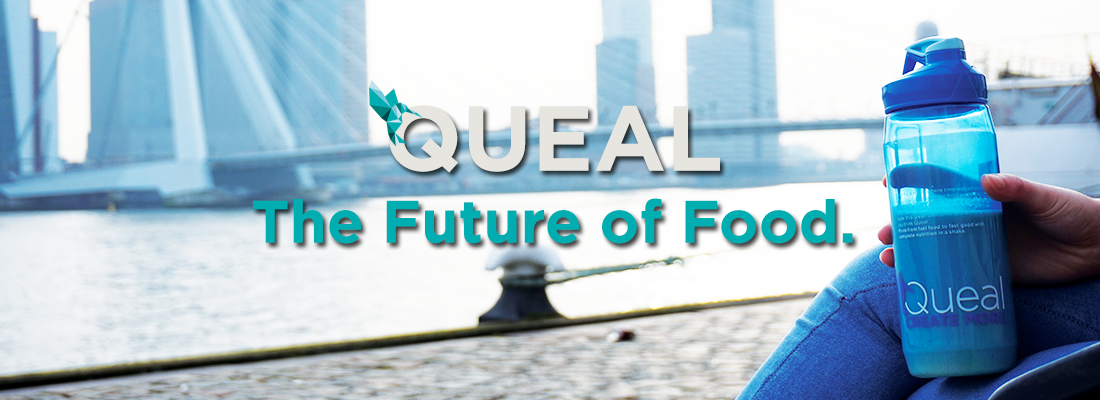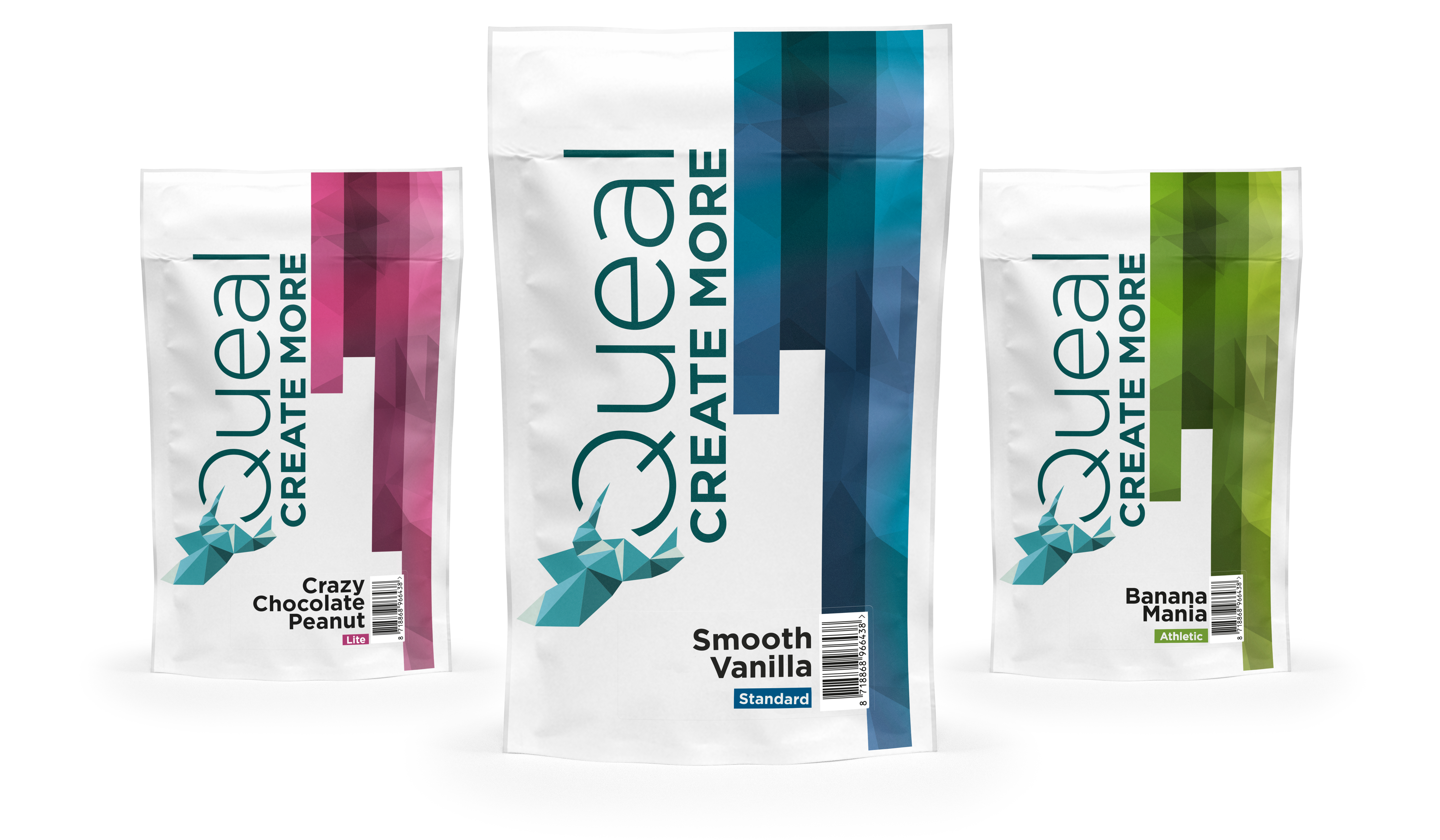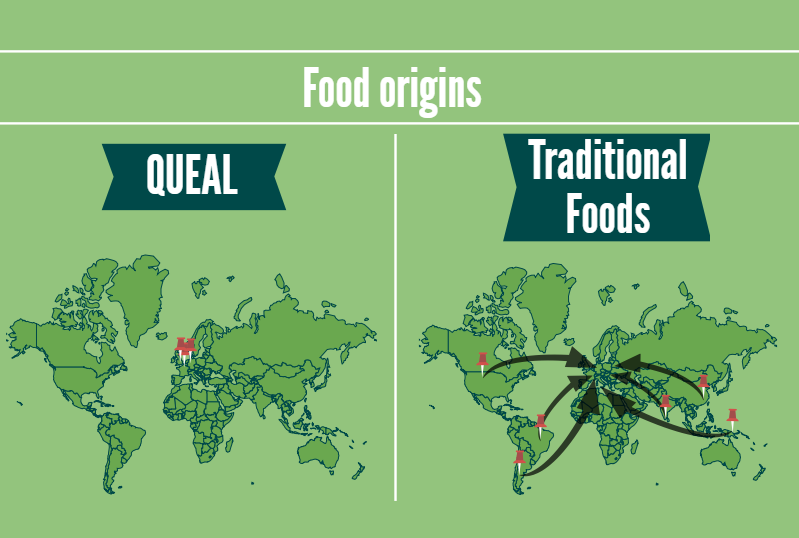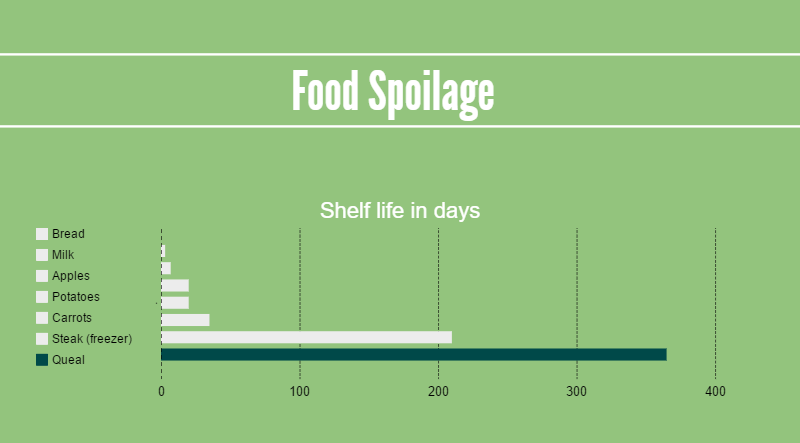
Queal: The Future of Food
“The future of food is food.” That’s what Revolution’s CEO Steve Case mentioned in his article about Soylent last year. He stated that Soylent might only be the future of food for some ‘Valleyites’. I disagree with his statement. In this blog, I’ll explain why -lent products like Queal definitely fit in the future of food and what advantages it will bring you (and the environment) by joining our movement.
About the article
Steve Case believes that the future of food will be food. Start-ups who are willing to beat the big boys with healthy alternatives are the food influencers of the future. Even though companies who are selling meal replacement powders are influencers in healthy alternatives as well, he is not a fan. His biggest concern is that Soylent discards the importance of breaking bread with family and that we don’t value human connection. In his opinion, we indeed need healthier food with a cheap(er) distribution and sourcing but he thinks this should be realized by authentic and fresh food. I do not entirely agree, let’s have a closer look at his criticism by explaining it from my point of view.
Why Queal is future proof:
First of all, Queal is a perfect nutritional option to replace any meal with. It is born from frustration that it’s not easy to buy a quick meal that’s also very healthy. We rethought how food has been made and what the purpose of food is: nutrition. We took a step back and engineered a meal that’s quick and also good for you. Queal is nutritionally complete: Made from natural, fundamental ingredients like oats, soy and corn and fortified with a custom-built vitamin- and mineral mix. Besides, Queal brings you time, energy, and freedom: It reduces the number of decisions I have to make in a day. All reasons for me to replace 2/3 of my meals during workdays.
Main aspects I like about Queal which makes it ‘future proof’ food are:
- Queal is a meal that fits in every lifestyle.
- Having a quick and healthy alternative improves the emotional state (also in times of stress).
- It’s complete nutrition, every meal (powder) contains 1/3 of the nutritionally RDA, it makes you feel secure in knowing your body gets everything it needs
- It’s in many ways a sustainable product: If you consider the packaging, preparation, production, and type of ingredients, Queal is a good choice for the conscious eater/consumer.
Lifestyle
 Queal distinguishes itself on a variety of aspects from Soylent. Queal is suitable for every lifestyle. Between the companies, the consumer types are the most important difference. Soylent is most used by 29-years-old techy entrepreneurs who do not feel like spending to much time on prepping and consuming food.
Queal distinguishes itself on a variety of aspects from Soylent. Queal is suitable for every lifestyle. Between the companies, the consumer types are the most important difference. Soylent is most used by 29-years-old techy entrepreneurs who do not feel like spending to much time on prepping and consuming food.
This is very much related to our biggest consumer group, but we differ in offering our three diet types: Standard, Athletic, and Lite. Whether you are living an active lifestyle, work at an office or if you have to go to college every day. According to the criticism of Case, Queal will suit in a lot more future households.
Emotional aspect
We often hear that people question -lent products, because they assume that food has to be an emotional (family) event. Sure, the traditions of eating food socially goes a long way back. But people forget that in the very beginning, food was a way to survive (and still is). What we have done with Queal is looking at food through a different lens. We brought food back to the basics and ensure you that it brings your body everything that it needs to stay fit and healthy.
If you look at our society as one that is under constant pressure to perform, more and more people are searching for functional foods. Food to fuel their work, passion, or exercise but without taking your precious time. Looking at concepts like Eatsa, which is very popular, people more often like to go for a convenient and healthy (but less social) solution. In my opinion, it just takes some time to feel more secure by replacing meals with nutritional shakes. For most people, this would be a much healthier alternative than what they are currently eating. We tend to seek food that is high in fats and calories when we are stressed. It’s even not unaccustomed to skip meals if we experience stress (30% of us will skip meals, 41% of them does it more than once a week).
Nutritional aspect
Like I mentioned earlier; the purpose of food is nutrition. As you might already know, there are currently three huge problems related to food:
- There’s an unfair distribution of food. This means that even more people on our planet are obese than those who suffer from malnutrition.
- To feed 9 billion people by the year 2050, we are definitely in need for more sustainable production processes.
- Millions of tons of food is wasted, up to 50% of total food weight are lost before they can be consumed. And approximately another 40% gets wasted in retail or due to consumers.
Following these three subjects, I’ll explain why Queal fits in the future of food.
Food distribution
If we are talking about malnutrition, people easily think about Third World Countries who are suffering from hunger. But this image doesn’t clarify the whole story: In the western world, people also suffer from malnutrition. Nutritional health depends on a right balance of macro- and micronutrients. This means that malnutrition can be caused by a lack of calories to meet your body’s energy demand or a lack of vital nutrients. 15 million people in developed countries have an insufficient amount of food available to meet basic needs. The inability to access, purchase or even prepare healthy food in a good way cause a shortfall in e.g. fibre, calcium, potassium and vitamin D. All these nutrients are in the right amount added to Queal. When you include Queal in your diet, you don’t have to worry if you eat less or more than the RDA.
Sustainability
Queal is sustainable in some different ways. In this paragraph, we shine a light on distribution, packaging, and production. The EU’s imports agricultural products mainly from countries like Brazil, the US, Indonesia, China, and India. Now, that means loads of trucks and boats travelling all over the world, burning fossil fuels in the process. Now let’s see where Queal gets its ingredients from:
 All of Queal’s main ingredients come from the EU. Countries range from the UK to Belgium and Germany. This means less transportation of ingredients and no import from outside of the EU, increasing yields for European farmers. If we take into account the weight-to-nutrient ratio, Queal is definitely considerably efficient in terms of transportation as well. All Queal products are vegetarian, which means that we reduce the production process footprint.
All of Queal’s main ingredients come from the EU. Countries range from the UK to Belgium and Germany. This means less transportation of ingredients and no import from outside of the EU, increasing yields for European farmers. If we take into account the weight-to-nutrient ratio, Queal is definitely considerably efficient in terms of transportation as well. All Queal products are vegetarian, which means that we reduce the production process footprint.
Besides, Queal also doesn’t have to be refrigerated. This saves on energy consumption.
Food waste
We are proud to be one of the companies which offer a partial solution to our current environmental issues. Switching to a powdered food diet eliminates a lot of waste production coming from agriculture or livestock. The efficient packaging also contributes to reducing the amounts of food related trash in general. The long shelf-live greatly reduces the amount of food thrown out and it’s up to you how big your servings are.
 In The Netherlands, up to 25% of food is thrown out due to their expiration date. In case you are using Queal, a maximum of 1% gets wasted.
In The Netherlands, up to 25% of food is thrown out due to their expiration date. In case you are using Queal, a maximum of 1% gets wasted.
The future of food, what’s next?
Hopefully, this blog has clarified a lot according to the benefits of Queal and why it’s good for you and the environment. Of course, there’s always room for improvement. I’m very curious if you have any suggestions or a clear opinion about Queal as the future of food. You might have some interesting other products or examples where you’re enthusiastic about. Therefore you can visit the forum and join the conversation! I’ll be pleased to hear what cool ideas you have.
Join our list and find out more about Queal in our free ebook!



No Comments